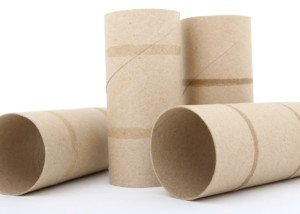
Microscopic colitis can cause numerous problems including tons of diarrhea.
Can it also cause food — even healthy food — to be malabsorbed, depriving you of nutrients?
“Malabsorption is not a classic feature of microscopic colitis since the disease affects the large intestine which handles fluid absorption,” says Matilda N. Hagan, MD, an inflammatory bowel disease specialist at The Center for Inflammatory Bowel and Colorectal Diseases, part of The Melissa L. Posner Institute for Digestive Health and Liver Disease at Mercy Medical Center in Baltimore.
She adds, “You can get dehydration from large amounts of watery diarrhea.”
Here’s why you might think that microscopic colitis can cause malabsorption:
You may see particles of undigested food in your diarrhea. This can include seeds and shreds of spinach and what appear to be fragments of grapes and strawberries. You may see grains of rice.
Seeing food in your diarrhea can lead to the conclusion that there’s malabsorption.
But what’s really happening is that, due to the looseness of the diarrhea, or its dispersability in the toilet bowl water, any undigested food is easily visible.
In formed, harder stools, however, fragments of fruit, olives, or seeds or grains of rice, will be well-hidden; you’d have to break apart the stools and examine closely to see undigested material.
Some Causes of Malabsorption
• Celiac disease. Interestingly, diagnoses of microscopic colitis is higher in the celiac population than in the general population, but no causative link between celiac disease and microscopic colitis has been identified.
It may simply be that having one autoimmune disease (celiac) raises the risk of developing another at some point in time (e.g., microscopic colitis).
• Severe pancreatic insufficiency
• Cirrhosis of the liver (caused by excessive alcohol intake)
• Gastroenteritis
• Lactase deficiency
• Abnormal motility due to diabetes or thyroid disorder
• Acute intestinal infection
• Crohn’s disease
There’s quite a few other causes of malabsorption, but rest assured, none of them are microscopic colitis.
 Dr. Hagan is dedicated to collaborating with IBD specialists to discuss and explore advanced treatment options for the most complex inflammatory bowel disease cases.
Dr. Hagan is dedicated to collaborating with IBD specialists to discuss and explore advanced treatment options for the most complex inflammatory bowel disease cases.
 Lorra Garrick has been covering medical, fitness and cybersecurity topics for many years, having written thousands of articles for print magazines and websites, including as a ghostwriter. She’s also a former ACE-certified personal trainer.
Lorra Garrick has been covering medical, fitness and cybersecurity topics for many years, having written thousands of articles for print magazines and websites, including as a ghostwriter. She’s also a former ACE-certified personal trainer.
.

























